Research Briefs
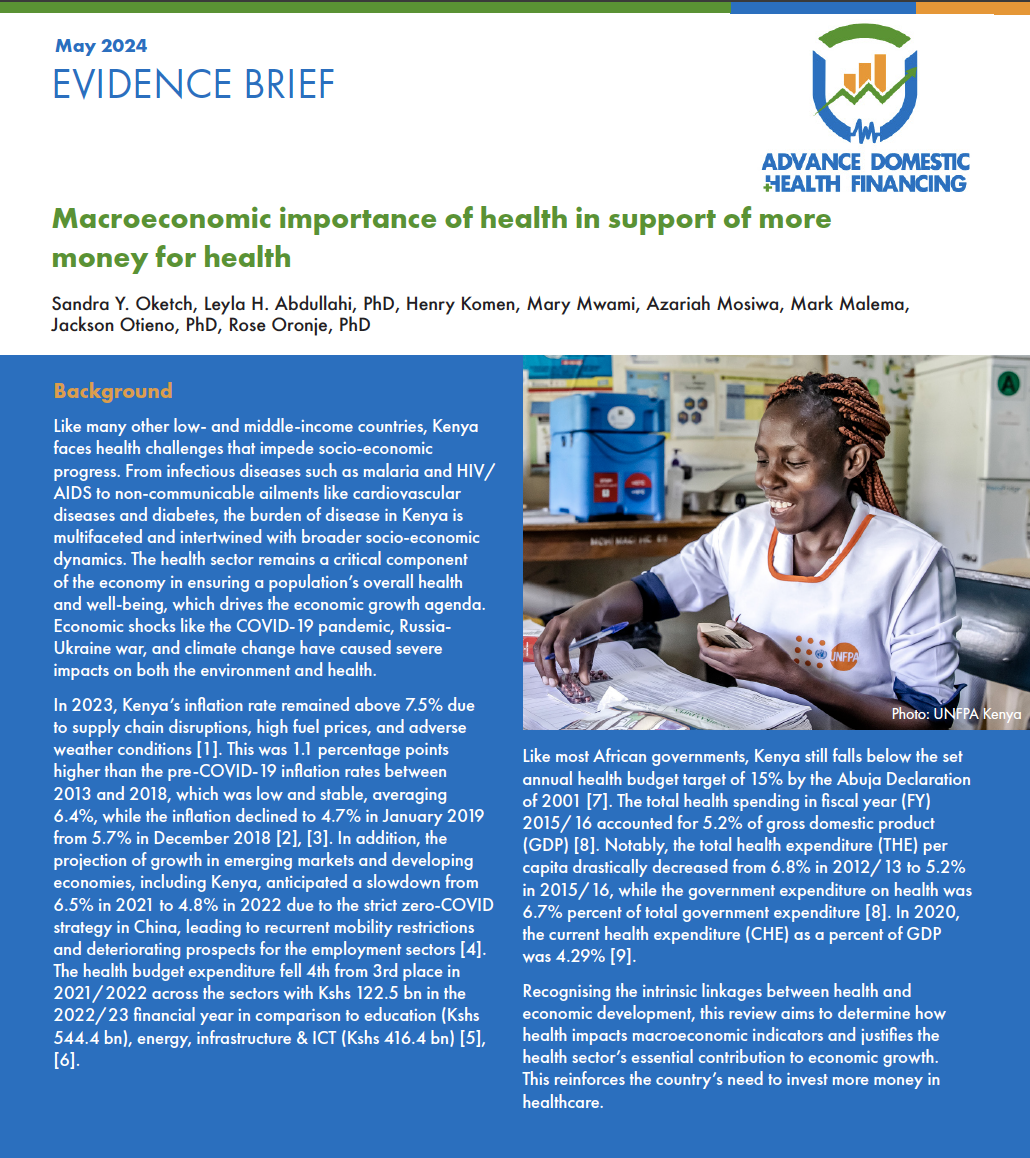
Investing in healthcare is not just a matter of well-being; it’s a strategic move for economic prosperity. Kenya, like many other nations, grapples with a complex web of health challenges, from infectious diseases to non-communicable ailments, all intertwined with broader socio-economic dynamics. By prioritising health, Kenya can unlock its economic potential and foster inclusive growth. Read our evidence brief on macroeconomic importance of health in support of more money for health: A case for Kenya:

Multiple factors have been reported to drive the burden of TB among men globally, including behavioural factors such as tobacco smoking and alcohol consumption, social mixing, risky occupational exposures such as mining, and poor access to health services. These existing disparities pose a challenge to achieving broader progress towards global TB elimination, necessitating the identification of high-risk groups as the first step toward developing equitable policies and targeted interventions. Cross-sectoral collaboration among government agencies is essential to ensure synergy and complementarity in policies and strategies that are aimed at engaging men in TB programming. Read more from this evidence brief […]

Social health insurance (SHI) is a health finance mechanism that seeks to equitably protect people against financial and health burdens through risk pooling, which considers both the health risks of the people and the contributions by individuals, households, enterprises, and the government. SHI is being implemented in many countries as one of their main mechanisms for achieving universal health care (UHC). SHI typically has three characteristics: compulsory enrolment with members paying a specific premium; only those registered are entitled to benefits; and a legislation outlining the benefits members are entitled to for the premium amount they paid. Kenya is a […]

Researchers at Jomo Kenyatta University of Agriculture and Technology (JKUAT) with support from the Foundation for Innovative New Diagnostics (FIND) conducted a pilot study in four of Kenya’s 47 counties selected to represent Kenya’s different disease zones to understand the diagnostic capability of health facilities in Kenya. The study aimed to develop a Diagnostic for Universal Health Coverage (UHC) Tracker, to promote integration of diagnostic data in decision-making to improve access and quality of primary care services. Click here to read more.
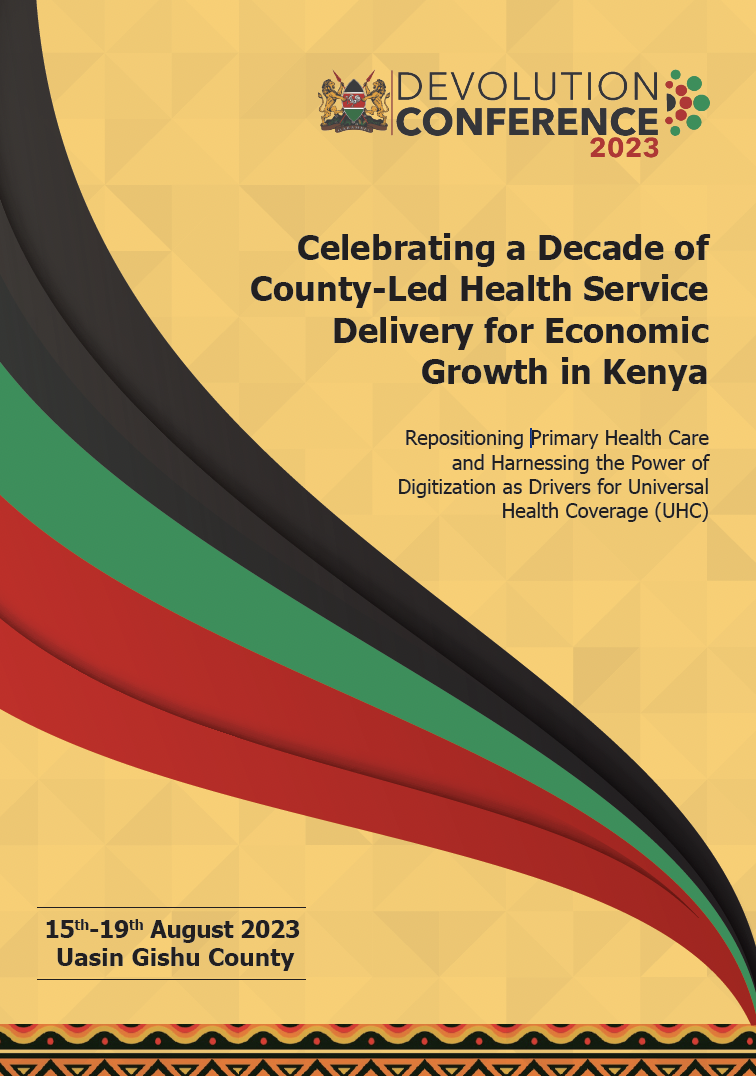
In the lead up to the Kenya’s Devolution conference in August 2023, African Institute for Development Policy (AFIDEP), through the Advance Domestic Health Financing project, presented a rapid synthesis of published and grey literature highlighting select successes and challenges of existing initiatives to inform ongoing and future county level Social Health Insurance fund and Universal Health Coverage reforms and implementation processes in Kenya and other countries with a similar devolved governance structure. The evidence brief was published in the Council of Governors booklet: Celebrating a decade of county-led health service delivery for economic growth in Kenya; Repositioning primary health care […]
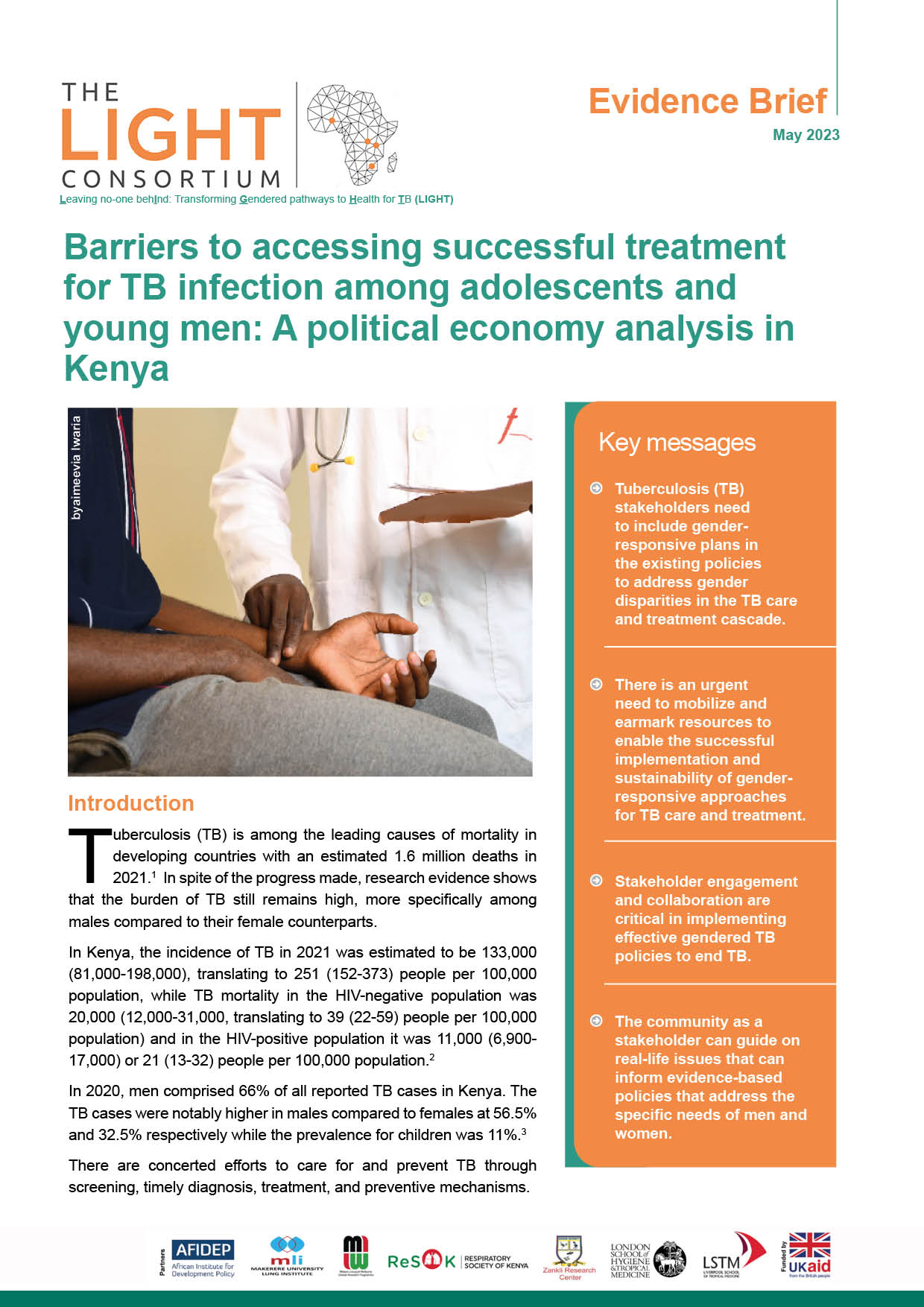
In 2020, men comprised 66% of all reported TB cases in Kenya. The TB cases were notably higher in males compared to females at 56.5% and 32.5% respectively while the prevalence for children was 11%.3 There are concerted efforts to care for and prevent TB through screening, timely diagnosis, treatment, and preventive mechanisms. Read more:

Globally and in Africa, health is recognised as critical for sustainable development and there has been growing pressure on governments to allocate adequate resources to health. This brief starts by highlighting global and regional commitments that African countries have ratified that focus on health and domestic health financing and the status, challenges and opportunities for African governments to translate these commitments at country level. The brief then highlights three key innovations in domestic health financing and efficient use of resources being implemented and explored in Africa and elsewhere. This brief is based on a rapid review of existing evidence and […]

Globally, 2.8 million newborns die each year, with low and middle-income countries (LMICs) contributing to 98% of this burden. In Kenya, neonatal mortality has continued to be a major health challenge for the past decade. Kangaroo Mother Care (KMC) is an effective evidence-based intervention to reduce neonatal morbidity and mortality, and the health system plays an essential role in the scale-up and adoption of KMC. Read further on these neonatal interventions.
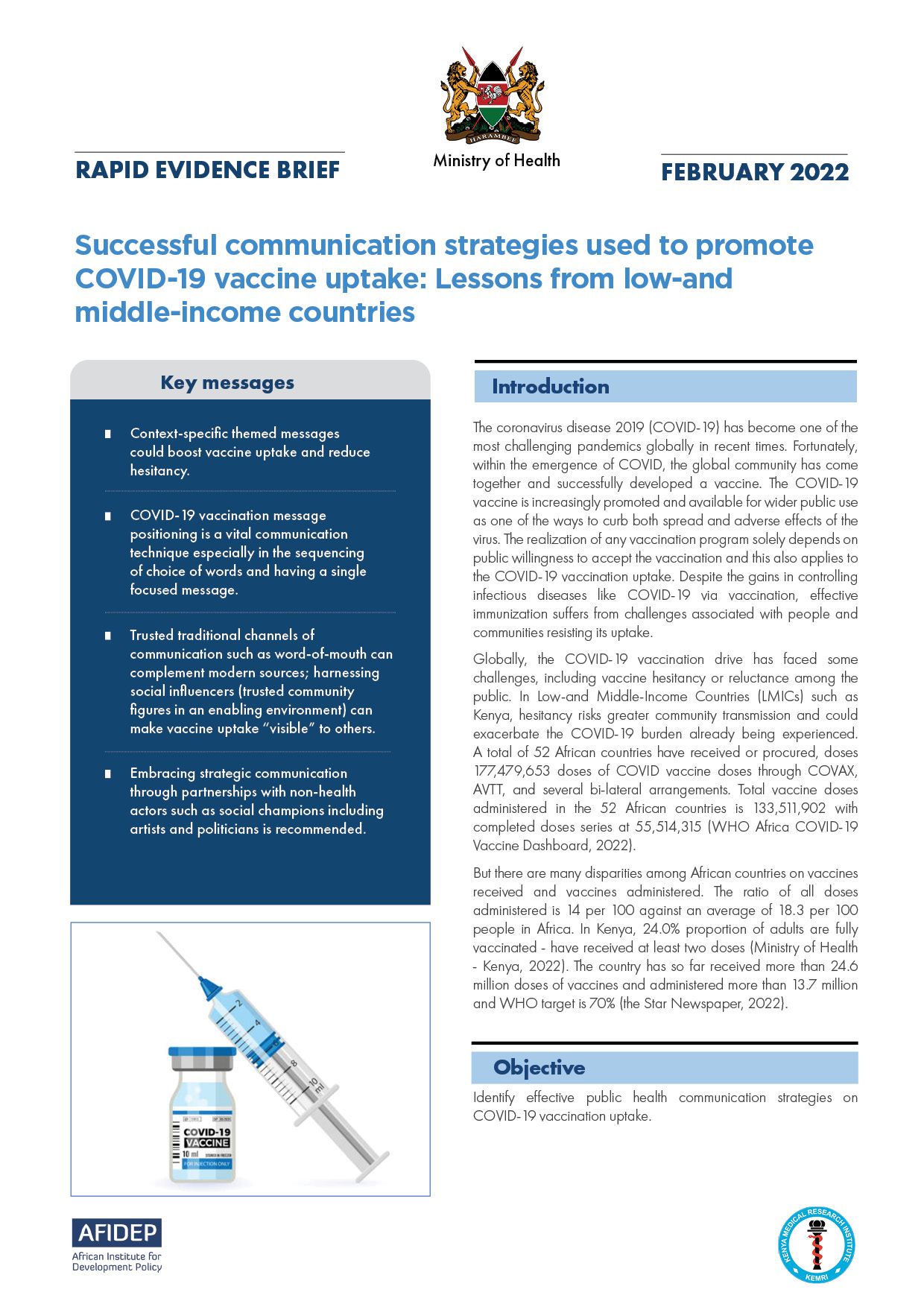
Globally, the COVID-19 vaccination drive has faced some challenges, including vaccine hesitancy or reluctance among the public. In Low-and Middle-Income Countries (LMICs) such as Kenya, hesitancy risks greater community transmission and could exacerbate the COVID-19 burden already being experienced. COVID-19 vaccination message positioning is a vital communication technique, especially in the sequencing of choice of words and having a single focused message. Read more on lessons from low-and middle-income countries’ communication strategies used to promote COVID-19 vaccine uptake.
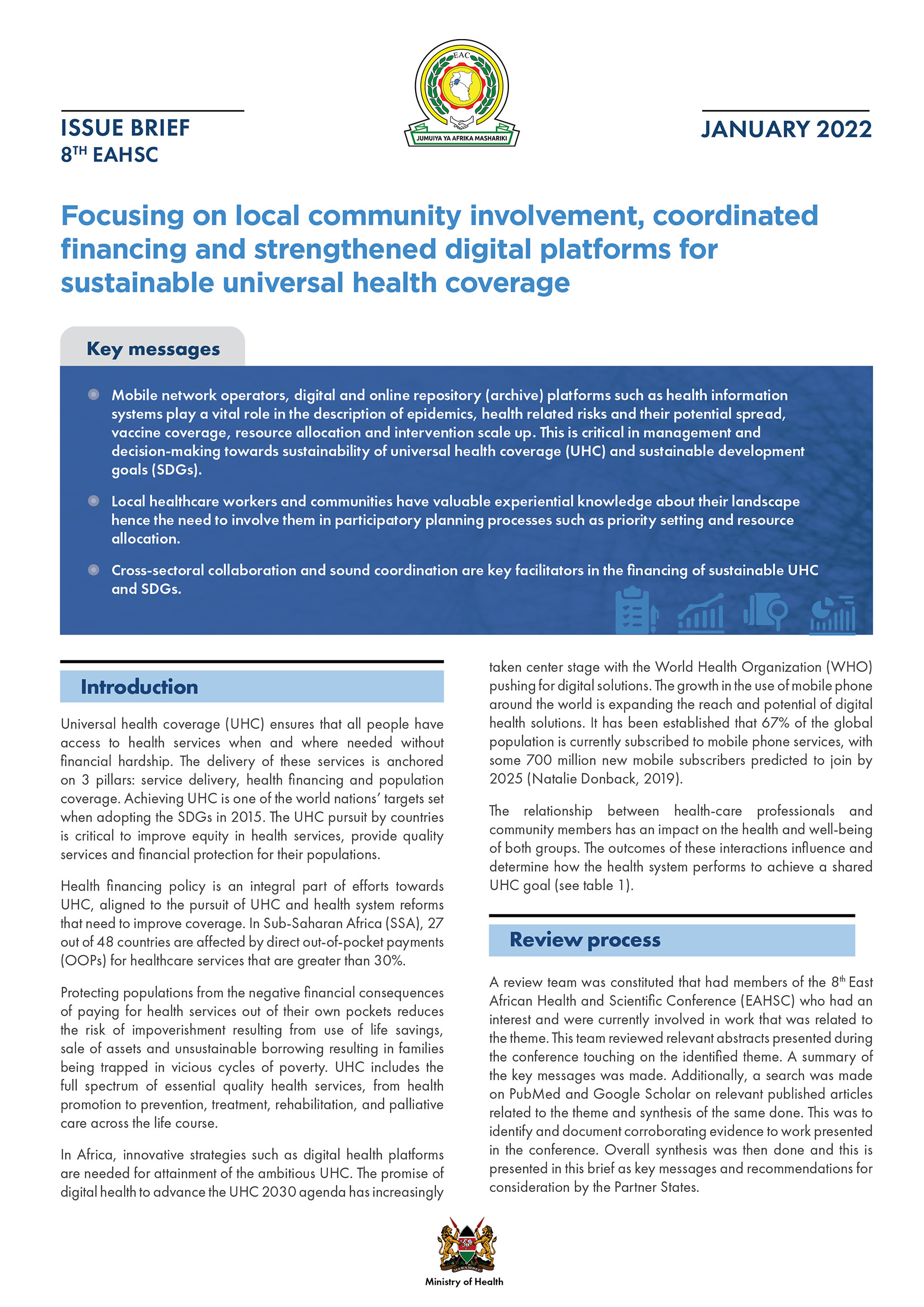
The East African Health and Scientific Conference (EAHSC) is a bi-annual event organized by the East African Health Research Commission (EAHRC) and East Africa Community (EAC) Partner States. Its main objective is to promote the application of research as well as strengthen regional cooperation in health in line with Article 118 of the Treaty of Establishment of the EAC.
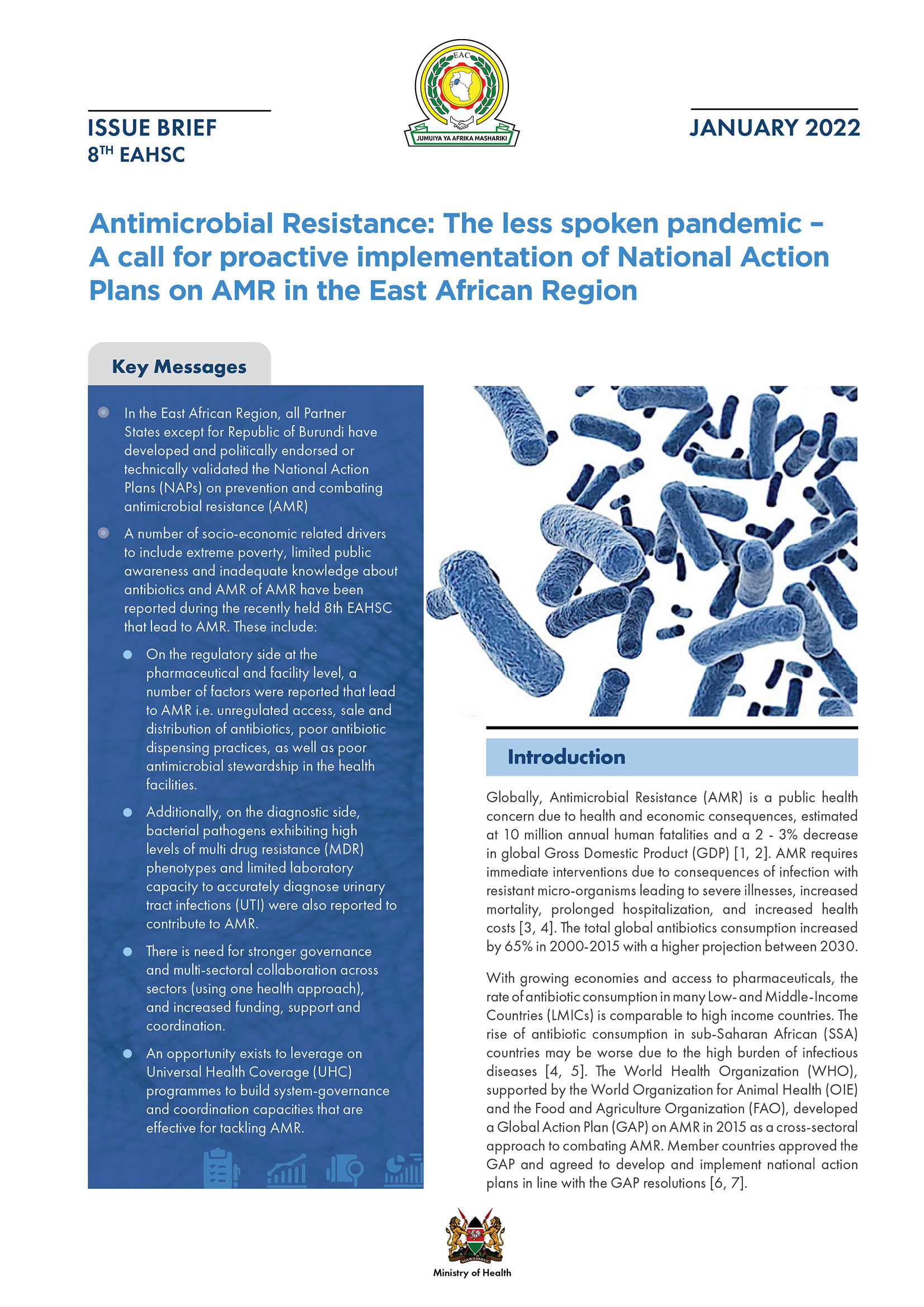
This issue brief presents a summary of abstracts presented during the 8th East Africa Health Scientific Conference (EAHSC) on COVID-19; as well as key messages and recommendations from the review and synthesis of the abstracts. The Conference was held between 17-19 November 2021 in Nairobi, Kenya.

This issue brief presents a summary of abstracts presented during the 8th East Africa Health Scientific Conference (EAHSC) on COVID-19; as well as key messages and recommendations from the review and synthesis of the abstracts. The Conference was held between 17-19 November 2021 in Nairobi, Kenya.

